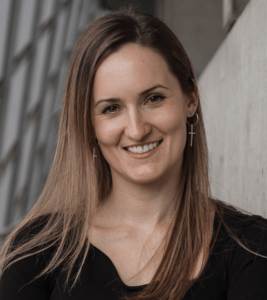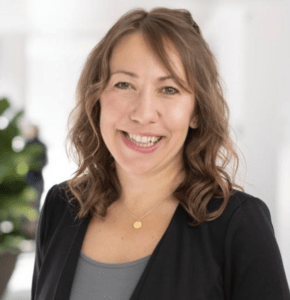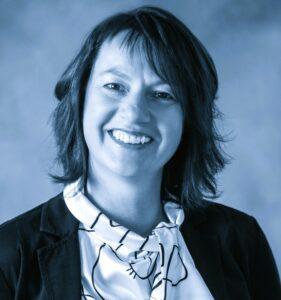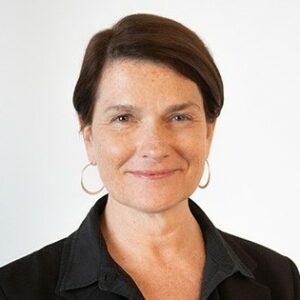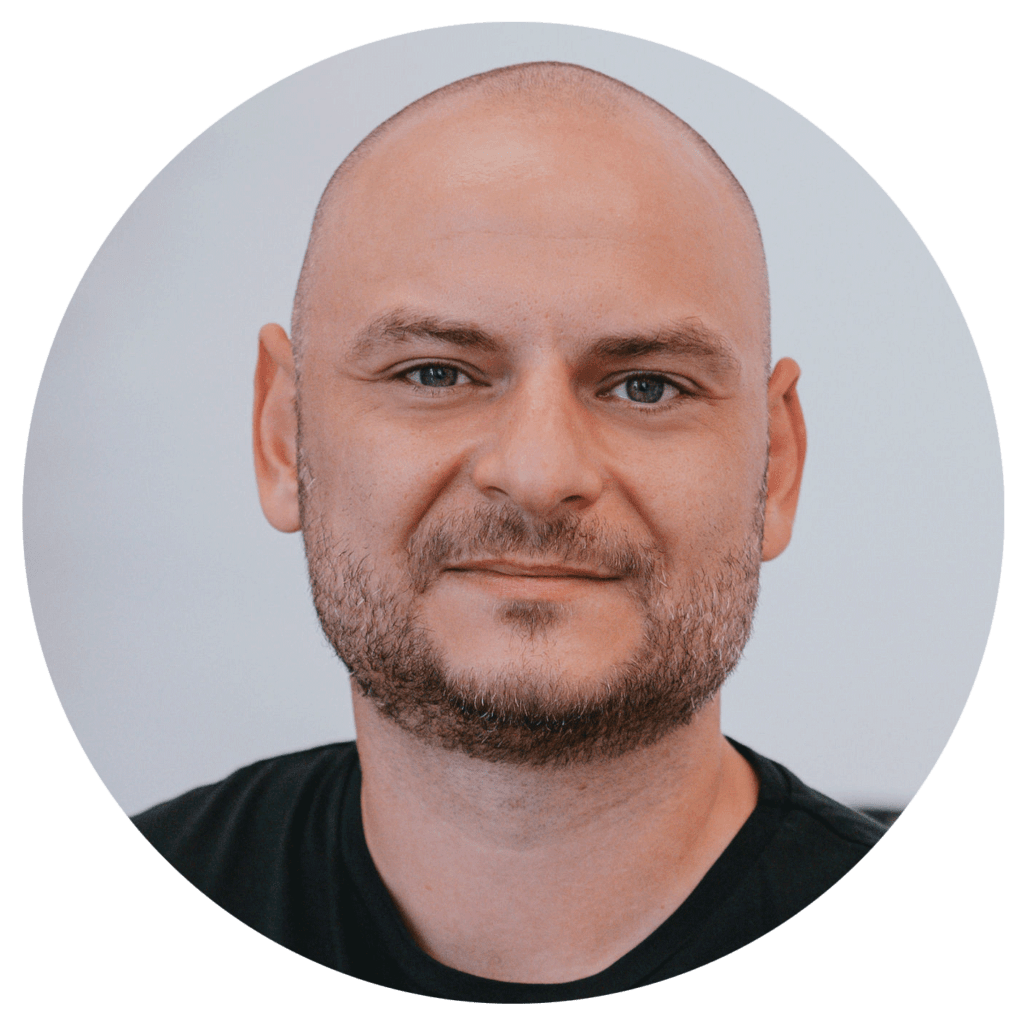
Alexander ist Head of People & Operations bei bikemap in Wien.
Alexander Hage
Unternehmen
Bikemap GmbH
Unternehmensbranche?
Internet Technology
MitarbeiterInnenanzahl
40 people from 19 different nations
Deine beruflichen Stationen?
Total experience of 7 years. My career started in international Executive Search, after that having led several positions in Talent Acquisition in Austrian Scale-Ups. Now I have been at Bikemap since 2021 as Head of People & Operations.
Deine Aus- und Weiterbildung?
HR-Management and Organisational Development at the FH Wiener Neustadt, International Business Relations at the FH Eisenstadt, Certified Agile HR-Practitioner.
How can we imagine HR in a small start-up? We asked Alexander at Bikemap. The Vienna-based company was founded in 2014 and currently employs 40 people from 19 different nations. Alexander talks about his HR team, why everyone in HR should be curious, and that HR gets more directly involved in the value chain.
What are the biggest challenges in your HR role at the moment?
In the last few years, we at Bikemap have grown significantly. The biggest challenge at the moment is to follow up on the structures and further professionalisation. We currently have 40 employees. Another big topic is cross-functional collaboration across teams. Our aim is to achieve a greater focus on users in our structure. We recently organised workshops with the teams to work with retrospectives and strengthen the cooperation and feedback loops between the teams.
Do all employees work at the Vienna location?
No, not everyone works at the headquarters in Vienna. There is also no obligation to be present at the office. We leave it up to our employees whether they want to work from home, and can even work from abroad. I myself did a workation in Berlin last September and it went very well.
Where and how does your company implement „New Work“?
We follow different approaches. For example, we have a feedback channel for our product where everyone can give ongoing feedback.
We also try to offer something for each of our employees‘ lifestyles. For example, for parents who need time to pick up their kids in the afternoon or for the student who likes to surf in the summer. We adapt to our employees and not vice versa. There is no uncompensated overtime with us. Everyone can save up their overtime and use it later. Every extra hour is returned as free time.
As many of you work distributed and remotely, how do you manage to stay connected?
Twice a year we organise an event where we invite everyone to Vienna, including the remote employees. Once during the summer, where we go cycling together, and once for Christmas. We asked our remote employees if they would like to have a third event and 100% said yes! Therefore we will have another in-person event by the end of March. Online events were less in favour. From our experience, they cannot replace face-to-face meetings completely.
How would you describe the culture of your company?
The average age is 30 – it’s a super mix of young, top-motivated people and more experienced people. We share a common vision to improve, revolutionise and make the cycling experience better for people all over the world. That’s what connects us. But we don’t work at the expense of our health. We don’t just want to deliver corporate numbers. Our culture is shaped by a shared vision and by sharing ideas and appreciation. To some extent also by inexperience. Honestly, sometimes we also have to fall on our faces. But then next time, we know better.
How can we imagine HR in a small start-up? Do you work alone or in a team?
There are three more people working in my team, but they don’t all do 100% HR work. Our office manager, Mariana, is in charge of creating a nice office space and atmosphere for our colleagues. She is originally from Mexico and learned German within a year. I appreciate her conscientiousness and her great customer orientation. Our compliance manager, Ariana, does besides her normal job also labour law, takes care of contract amendments and works on Diversity, Equity & Inclusion projects. She supports us with great professionalism, I can totally rely on her. And then there is Heiko, located in Konstanz (Germany), who works part-time with us. He takes care of accounting and finance topics. When it comes to payroll, he’s the go-to person and works on international HR topics on a selective basis. I value his vast experience and his valuable feedback. He is a real jack-of-all-trades who has been with us for a long time. His heart beats for Bikemap.
Which completed HR project in the recent past are you proud of?
The increase of the female ratio within our C-Level and management level. When I started, there were 0% women on the C-level and 25% on the management level. As of now, we have 33% women on the C-Level and 45% on the management level. Diversity is a big topic in the tech industry right now. Also, the software development teams used to be almost all men. I am very proud that we have made the staff more female on all levels. Three-quarters of the hiring since I’ve been there have been women. In total, we currently have more than one-third women and two-thirds men. That is also very well received by the employees. For a small company, that is a great success.
What makes a good HR colleague for you?
The most important thing is to have a curiosity for people and a desire to improve the reality of their lives. A sense of empathy and a genuine desire to help people is something that everyone in HR should have. Whether you work in Learning & Development, Compensation & Benefits, or Recruiting. You can build an organisational masterpiece in HR based on scientific data. But if you can’t empathise with people, it’s usually doomed to failure. There is a great danger that processes and structures are built without taking the people into account.
„HR should courageously separate itself from dusty processes and become more directly involved in the value chain.“
Where or how should we become bolder in HR in general?
HR should courageously separate itself from dusty processes and become more directly involved in the value chain. This means asking ourselves how we as HR can also support creating value for the customers. We also have our part to play for the end customers. There is often still a lack of courage. We also have to acknowledge that we don’t always know what to do or how to manage a situation. We are not experts just because we have been doing processes this way for a certain amount of years. We need to be bolder and get more feedback from the users of our processes and products. The end customer knows best. We can’t sit idle in our HR ivory tower.
In your HR role, what are the 20% of tasks that account for 80% of success?
Over the past year, I made time to do a workshop with each department. The content was a mix of retrospective and peer feedback. This allowed me to dive into the microcosm of each team and I learned a lot. Of course, I had hypotheses about how the teams work together and what makes them tick. But I was positively surprised by what was possible in this short time of a workshop and how much more I knew and understood afterward. You often make a lot of assumptions without really being aware of them. Even a survey could not have achieved the same learnings. Being so close was very valuable. I was exactly where I needed to be as HR with these workshops.
Who or what makes you smile?
We have several dog owners in our company. When a dog toddles around in the office, it makes me smile. Or funny memes we send each other on Slack.
Which celebrity would you like to have dinner with and why?
Arnold Schwarzenegger. An Austrian who left to conquer the world with barely anything in his pockets. I like his statements very much. Reaching out to others and building bridges across political borders. Exciting curriculum vitae. A lot of humour. You get the impression that you can talk to him about anything.
